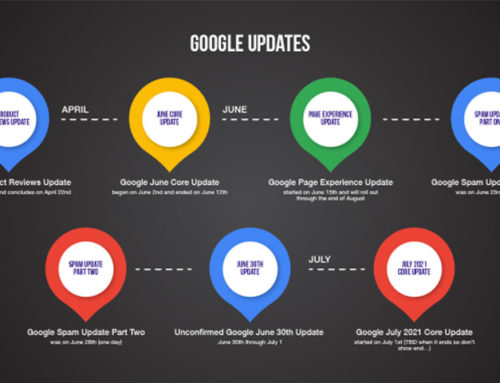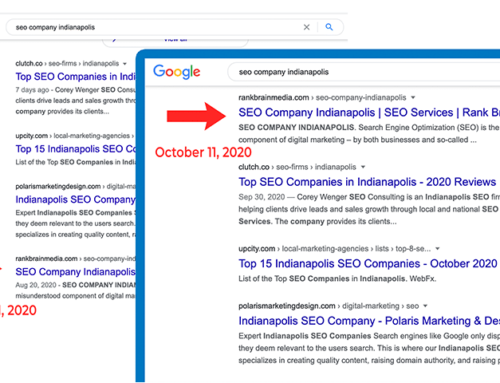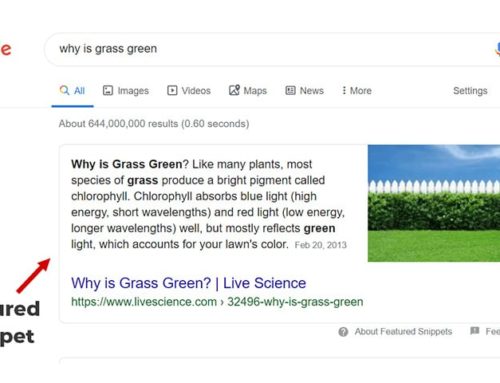One question we frequently receive from prospects and clients is regarding the need to focus on both paid search and organic search strategies as part of their comprehensive marketing plan. We often have clients ask us, “Why do I need to invest in both paid search and organic search as part of my digital marketing strategy? If I am performing well in organic, why should I pay for paid search….or if I am performing well with paid ads, why do I need to invest in an organic search program?” Both are fair questions; however, in order to answer these, we must dive deeper into how paid search and organic listings work together and why it is essential to maintain both types of campaigns as part of a robust digital marketing program.
According to Google, 50% of paid clicks are incremental. Translation: This means if you remove or pause your paid search campaign, you will not see your previous paid search traffic appear in your organic search data and 50% of your clicks will likely go somewhere else… potentially to a competitor. This is why it is so important to consider a digital marketing strategy that’s inclusive of both paid and organic search strategies. Let’s take a look at specific examples of the potential benefits of running paid and organic search together.
1. Valuable Search Engine Results Page (SERP) Real Estate
When you view a search engine results page (SERP) you will notice the paid listings at the top of the page and organic listings positioned below, filling the rest of the page. Visually, this is the easiest way to see how paid and organic benefit by working in tandem. If you think of the SERP as prime real estate opportunity, you will want to make sure you are maximizing efforts to occupy as much of the on-page real estate as possible. This is why it’s important to run paid search and organic together – the more space on the page you occupy, the less space your competition will be able to occupy, which will hopefully lead to more traffic, conversions and revenue for your brand.
Occupying as much of the page one SERP real estate as possible reinforces your brand identity to your website visitor (or potential visitor). If a searcher is earlier in their buying process and hasn’t performed a ton of research, occupying more page one real estate helps you not only stand out against your competition, but also conveys a message of legitimacy to someone who isn’t super familiar with your brand. If they’ve never heard of your brand before, but see you in the paid search ads and the top organic listings, users are going to be more open to clicking on your page and learning more about your product.
2. Using Cross-Channel Data To Your Advantage
Ask any digital marketer the differences between paid search and organic search and they will provide an extensive list of ways the two channels differ. However, these differences can provide great intelligence for creating a comprehensive digital strategy, inclusive of both. For example, paid search is considered a sprint race, meaning data and results can be collected immediately following the posting of an ad. Marketers can take paid data and make adjustments to the paid strategy based on results they identify in their analysis on a daily basis. Organic search, on the other hand, is considered more of a marathon, once website optimizations are implemented it can take more time for the website to get indexed by the search engines and thus more time to collect data based on the concepts implemented. And that’s a great time to talk about optimizing your site architecture.
Using Paid Search Data for Organic Strategy
The differences in the maturity of data can provide a great campaign snapshot for each channel. For example, when building an organic keyword strategy, it is beneficial to analyze paid search keyword data (such as Google Ads) for testing copy and refining call-to-action verbiage, click-through-rates and conversion metrics to assess how paid search keywords perform and decide whether it makes sense to use those keywords in your organic strategy.
Using Organic Data for Paid Search Strategy
Organic keyword data can also provide keyword intelligence for paid search campaigns. Paid search keywords are expensive since they must be bid on. Organic keywords are not. If you are running a paid search campaign on a tight budget, a great place to start your keyword research is by taking a look at the organic keyword ranking report. This will give you valuable insight regarding top-performing keywords without the investment in Google Ads.
Organic search relies heavily on using fresh, optimized content to maximize search potential for a webpage. Organic content can also benefit paid search campaigns by improving the Quality Score. If a page has a low quality score, adding properly optimized organic content to that page can help improve the Quality Score, which will improve ad rank and reduce CPC while driving up conversion and engagement rate.
3. Competitive Analysis
Competition for a brand can actually vary between paid search and organic. Paid search reports can identify competitors that might not have been realized from an organic perspective by showing which competitors are bidding on keywords. For example, if you are a large ‘big box retailer’ with a wide product breadth, you may automatically consider your competitive set as other big box retailers in the same arena. However, your paid search reports may provide information regarding other competitors not normally classified in the typical ‘big box retailer’ arena. Using the Google Ads Auction Insights report will allow you to identify competitors and impression share, which is information that can help develop organic strategy outside of the ‘typical’ comp set.
4. Paid Search And Organic Coming Together As One
There typically can be ebbs and flows when it comes to the balance of paid search and organic working together. For example, you may experience higher organic traffic on the weekends, but your paid search traffic may not reflect the same increase in traffic and it may make sense to increase your paid search spend to take advantage of the increase in search traffic.
Similarly, if there is any site downtime or removal of a page that is used as a sitelink in a paid campaign, it is important that those paid campaigns are paused so you don’t spend budget and create user frustration sending them to a broken page.
In order for proper execution of these types of examples, it is imperative that your paid search and organic search teams work together to communicate data and overall strategies so the two channels can work together to achieve optimal performance. Operating paid search and organic search in individual silos will not take advantage of opportunities to leverage each other and will cause campaign results to fall short.
When choosing a digital marketing agency, it is important to choose a partner who can provide expertise in both organic and paid search marketing. Rank Brain Media has a tenured team of search professionals who can assess your performance and create a strategy to optimize a variety of marketing channels.




